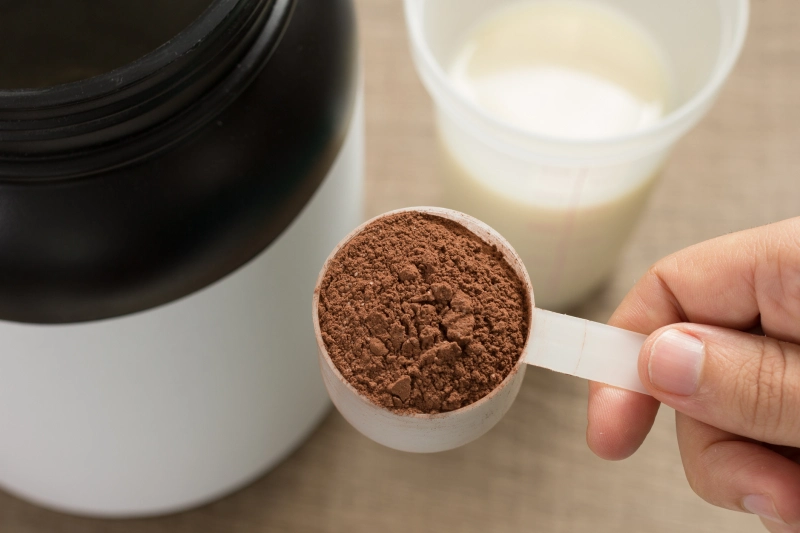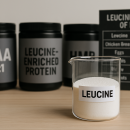One of the questions that often comes up is whether it’s better to mix your whey protein shake with water or milk. Both options have their pros and cons, so let’s take a closer look.
The Nutritional Differences
First, let’s talk about the nutritional differences between mixing whey protein in water versus milk. Mixing whey protein in water is generally the healthier option, as it provides a lower calorie and lower fat content compared to milk. However, milk does provide additional nutrients such as calcium, vitamin D, and potassium, which can be beneficial for overall health.
Let’s talk TASTE!
Now, let’s move on to taste. Most people will agree that mixing whey protein with milk makes for a creamier, more enjoyable taste. This is because milk contains fat and sugar, which can mask the sometimes slightly bitter (depends who you talk to) taste of the whey protein raw material.
On the other hand, mixing whey protein in water can result in a thinner, less flavorful shake that some people may find unappealing.

What to companies do to make shakes taste okay in water?
When it comes to making protein shakes taste good in water, companies often use a variety of additives and ingredients to achieve the desired flavor and texture. Here are some of the most common additives that you might find in such protein shakes:

- Milk powder and/ or whey powder: these add a creamy texture to the powder. The downside is that they lower the protein content of the drink. I will touch more on this practice in another article.
- Thickeners: Xanthan gum and carrageenan are examples of thickeners that are often added to protein shakes to give them a thicker, creamier texture. While these thickeners are generally considered safe, some people may experience digestive issues when consuming large amounts of them.
- Fat powders: Some protein shakes contain added fat powders like MCT oil or coconut oil powder. These ingredients can improve the texture and taste of the shake. However, some companies use cheaper source of fats like sunflower oil powder which can be hydrogenated, a form of processing that can be used to make liquid vegetable oils more solid and stable at room temperature, but it can also create trans fats, which are known to have negative health effects.
- Carbohydrates: Companies may add carbohydrates like maltodextrin or dextrose to their protein shakes to improve the texture and flavor.
It’s worth noting that while these additives can make protein shakes taste better in water, they may not be necessary for everyone. Some people prefer the taste of unflavored or lightly flavored protein powders without any additives. Additionally, some of these additives may not be the healthiest options, and individuals should be aware of their nutritional goals and needs when choosing a protein shake.
So, why do companies add unhealthy additives to make their shakes taste good in water?
Well, the answer is simple: marketing. Companies want their shakes to taste good and be enjoyable to drink, so they add artificial sweeteners, flavors, and other additives to achieve this.
However, these additives can be unhealthy and can cause negative side effects such as bloating and digestive issues.
In the end, whether you mix your whey protein with water or milk comes down to personal preference and nutritional goals. If you’re looking to minimize calories and fat, mixing with water may be the better choice.
If you’re looking for a creamier, more enjoyable shake, milk may be the way to go. And when it comes to taste, there are plenty of options available that don’t sacrifice your health.

To view my Professional Profile on LinkedIn: please click here
To see my latest product creations: www.bioteenhealth.com
To view my Scientific Publications on PubMed: please click here
To get in touch, please write to: info@supplementscientist.com
Follow supplementscientist.com on Facebook: please click here
Medical disclaimer
The information presented on this website is intended for adults 18 or over. Its aim is purely educational and does not constitute medical advice. Please consult a medical or health professional before you begin any program related to exercise, nutrition, or supplementation especially if you have a medical condition. If you consume any product mentioned on our site, you do so on your own free will, and you knowingly and voluntarily accept the risks. © 2023. Supplementscientist.com







Leave a Reply